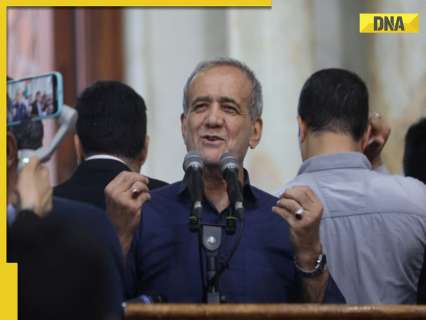The election of a lesser-known reformist as Iran’s new president could keep the possibility of diplomatic talks about the country’s nuclear programme open, particularly if the winner of the US presidential election in November decides to resume negotiations. Masoud Pezeshkian, a 69-year-old heart surgeon and former health minister, won 53% of the votes in a runoff election on Friday. He will replace Ebrahim Raisi, the ultra-conservative former president who died in a helicopter crash in May.
Pezeshkian is currently a member of Parliament. Pezeshkian won against Saeed Jalili, a former nuclear negotiator who is firmly against engaging with Western countries. Jalili’s critics were concerned that he would bring about strict, Taliban-like rules in society.

Pezeshkian is considered a moderate within Iran’s Shi’ite leadership and has promised to relax social restrictions, including the need for women to wear a hijab . During the short campaign, Pezeshkian stated that he would directly negotiate with the United States to remove the sanctions that have severely impacted Iran’s economy. In a speech on Saturday (July 6), Pezeshkian reportedly said he was there to seek lasting peace, stability and cooperation in the region, along with dialogue and constructive interaction with the world.
His campaign promise to engage more with other countries will be tested in a system where the Parliament is controlled by hardliners and supreme leader Ayatollah Ali Khamenei has the final sa.
















